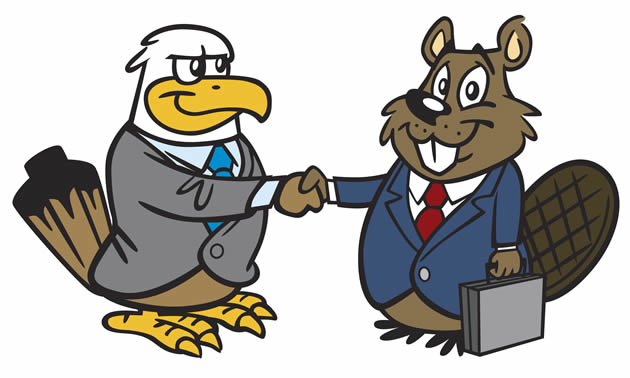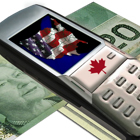The same only different
North or south of the border, we are mostly the same—downright good and caring people

We all tend to behave as if Canada and the United States are the same, and in many ways we are. English is the dominant language of each, we wear the same type of clothing, we watch many of the same TV programs, read many of the same books and magazines, frequent many of the same shops and we both love our countries. But, when it comes right down to it, we are also different.
From an RVer’s perspective, there are certain similarities and differences that affect us more than others.
Policies and politics
Money is one of the most outstanding contrasts of the two countries. In most areas not bordering Canada, Americans have little understanding of—nor are they willing to accept—Canadian currency, so be prepared.
Political systems also differ between our countries. Even though some of us learned about the American political system in school, most Canadians don’t know or understand the American system and few of the Americans we have met can explain it to me. Likewise, most Americans don’t know or understand the Canadian system and most of us don’t know it well enough to contrast it to the American system.
Our health-care systems are also very different. Most Americans have no idea how our health care can actually work and be affordable for everyone.
They also think that it is our medical insurance that restricts Canadians from visiting in the United States for more than 182 days. A Canadian visitor is allowed in the country for 182 days without getting an extended visa. The same applies to Americans visiting Canada. When we purchase the extra emergency medical coverage insurance, we specify the number of days we need to be covered.
Language variations
What do Canadians mean by “eh?” That’s a question often asked by our friends south of the border.
“Eh” is similar, but not the same, as saying “huh.” According to www.craigmarlatt.com, “The “eh” is an invitation for the listener to participate in the conversation (as) opposed to the speaker simply stating fact after fact.”
Here are some other definitions from the Knight’s Canadian Info Collection website:
Eh? = What did you say?
Eh? = What do you think?
Eh? = Something to say just to end a sentence.
Eh!? = What do you mean?
Eh?? = You’re joking!!!??
Eh! = Sure!
As Canadians spending almost half of each year in the United States, most of the time we don’t feel or even think about being different. As one of our neighbours said, “I have found that I was not born to judge others or the ways of others. We are all North Americans and proud to be so. We both have the very best neighbours on the planet. We watch, interact, grow with and assist each other like one happy family. Even happy families have major differences. I would not want anyone else living next door."








